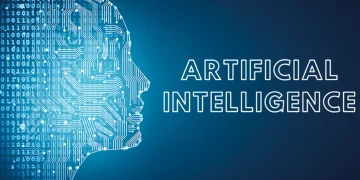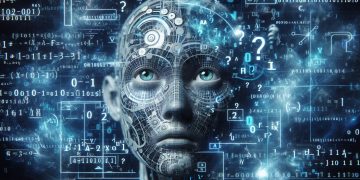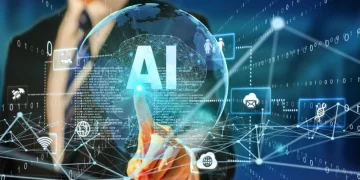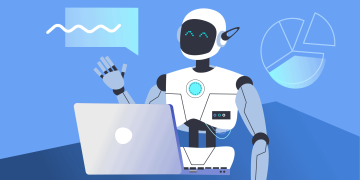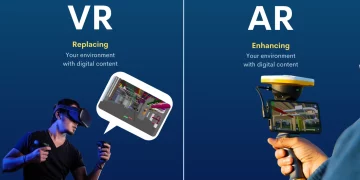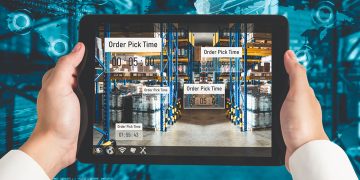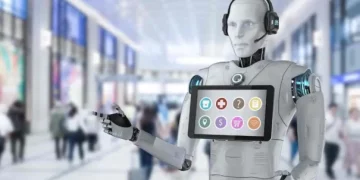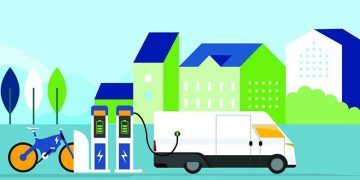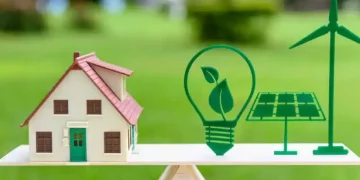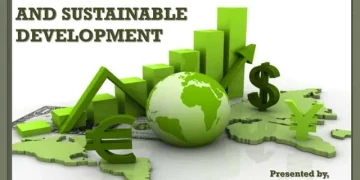Introduction: The Energy Transition as a Moral Project
The global transition to green energy is often described in the language of economics and technology — gigawatts, investment flows, carbon metrics. Yet beneath the numbers lies something deeper: a moral transformation.
The question is not only how we decarbonize, but why and for whom.
Energy is the invisible infrastructure of human life — it shapes wealth, opportunity, and even the rhythm of daily existence. Thus, the shift toward renewable and sustainable systems represents more than a technical adjustment. It is a redefinition of the human relationship to nature, to society, and to the future itself.
To understand the green revolution, we must see it as a civilizational narrative, where ethics, justice, and governance are as crucial as solar panels or hydrogen plants. This article explores the moral foundations, political dilemmas, and social responsibilities embedded within the green transition — and how humanity might navigate this era of profound change.
1. The Ethical Imperative: From Extraction to Regeneration
1.1 The Anthropocene and the Energy Conscience
We live in what scientists call the Anthropocene — a geological epoch defined by human impact. The old energy order, built on coal and oil, has driven extraordinary progress but also ecological crisis.
Now, the green transition is not just an environmental necessity; it is an ethical awakening.
The moral question is simple yet radical:
Can a civilization that once extracted its wealth from the Earth now learn to coexist with it?
This question reframes sustainability as a form of collective responsibility. Just as the industrial age was powered by the steam engine, the next age must be powered by empathy — by the recognition that energy choices reflect values, not merely efficiencies.
1.2 Beyond Zero Emissions: The Ethic of Regeneration
Net-zero targets, while critical, are not the endpoint of moral progress. They are the beginning of a deeper shift — from less harm to active regeneration.
True ethical energy systems do more than avoid damage; they restore ecological balance.
Imagine cities that generate more clean energy than they consume, power grids that support biodiversity through land use design, or carbon-negative industries that heal what was broken. These are not utopian ideas — they are expressions of a new moral metric: energy as healing rather than depletion.
2. Justice in Transition: Who Wins, Who Loses, and Who Decides
2.1 The Geography of Inequality
The green transition is global, but its impacts are not evenly distributed. Developed nations possess capital and technology to decarbonize swiftly, while developing nations still rely on fossil fuels for economic survival.
This asymmetry risks creating a green divide — where clean energy becomes a privilege rather than a right.
For instance, Africa holds 60% of the world’s best solar potential yet accounts for less than 1% of installed capacity. Meanwhile, supply chains for batteries and rare minerals often replicate old patterns of exploitation, with resource-rich nations exporting raw materials but not receiving equitable benefits.
2.2 Just Transition: Redefining Fairness
The concept of a just transition has become central to climate ethics. It calls for policies that protect workers, communities, and vulnerable populations during the shift away from fossil fuels.
In practical terms, this means investing in re-skilling programs, community-led energy projects, and social safety nets for affected industries.
Justice in transition is not charity; it is design. A green economy that excludes the poor is not sustainable — it is simply another hierarchy wearing a new color.
2.3 Intergenerational Responsibility
Ethical energy policy must also honor the future. Every gigaton of carbon emitted today is a debt imposed on generations yet unborn. The principle of intergenerational justice asks:
What kind of planet are we leaving behind, and who has the right to decide that fate?
Incorporating long-term thinking into governance — through climate constitutions, youth councils, and planetary trusteeship — transforms sustainability from a slogan into a moral contract across time.
3. Governance and Policy: Building Ethical Institutions
3.1 From National Policy to Planetary Governance
Climate change and energy security transcend borders. Yet the existing governance systems — designed for the industrial age — remain fragmented and reactive.
To guide the green transition ethically, humanity needs planetary-scale coordination: institutions that can balance sovereignty with shared survival.
The Paris Agreement marked a milestone, but enforcement remains voluntary. Emerging mechanisms such as carbon border adjustments, international green funds, and AI-enabled climate monitoring point toward a future of accountable global cooperation.
3.2 The Role of Democracy and Transparency
Energy transitions, if poorly managed, can reproduce the authoritarian tendencies of resource control. The answer lies in democratizing energy — not only in ownership but in knowledge.
Open data, citizen assemblies, and transparent policy-making empower people to shape the future of their own energy systems. When communities understand and participate, energy becomes not a commodity imposed from above but a shared right sustained from below.
3.3 Regulation and the Ethics of Innovation
As new technologies — from nuclear fusion to AI-managed grids — reshape the landscape, regulators face moral questions as complex as the technologies themselves.
Should artificial intelligence be allowed to autonomously control national grids?
How should data from smart meters be protected from misuse?
When should speed of innovation yield to precaution?
Ethical governance does not mean rejecting risk; it means managing uncertainty with integrity. Policymakers must balance innovation with safety, ambition with humility.
4. Culture and Consciousness: The Human Soul of Sustainability
4.1 From Consumer to Citizen
The success of green energy depends not only on policies or machines but on people — their habits, aspirations, and moral imagination.
For over a century, energy culture has equated consumption with success. The new paradigm demands a shift from consuming energy to curating energy — from passive users to active participants.
Energy literacy — the understanding of where power comes from and its consequences — must become a universal skill, like reading or mathematics. Only then can citizens hold institutions accountable and make choices aligned with planetary ethics.
4.2 The Aesthetics of the Green World
Sustainability must be beautiful, not only logical. Architecture, design, and art play powerful roles in shaping emotion and desire.
A solar roof can be more than functional; it can symbolize harmony. A green city can be more than efficient; it can express belonging.
When beauty and sustainability merge, the transition transcends policy — it becomes culture.
4.3 Religion, Philosophy, and the Spiritual Energy of the Age
Every civilization has drawn moral power from its vision of nature. Ancient cultures saw the Earth as sacred; the industrial age saw it as a machine. The green transition invites a spiritual rebalancing — a return to reverence for life as a systemic truth.
This does not require religion, but it does require meaning. A civilization that generates endless energy but loses its sense of purpose risks moral blackout.
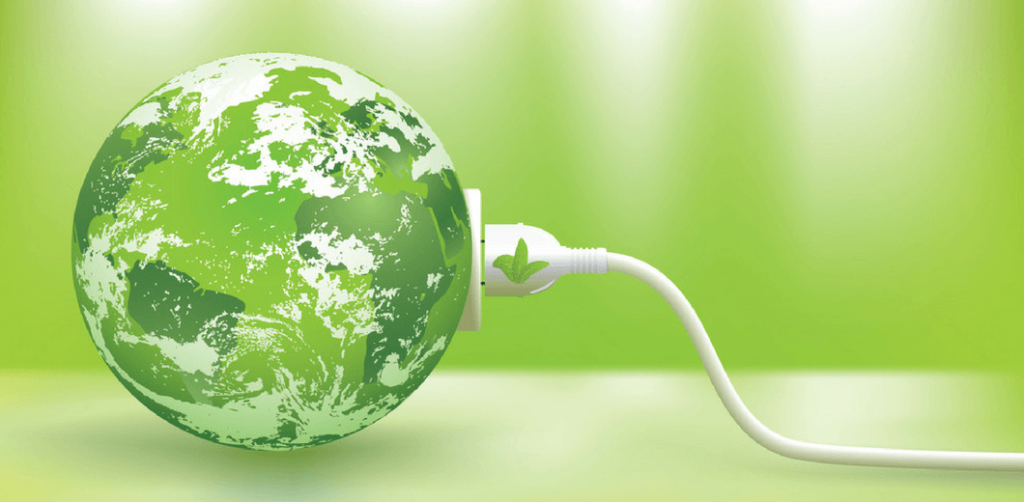
5. Technology, Power, and the Ethics of Control
5.1 The Digital Energy Paradox
Digital technologies — AI, blockchain, cloud computing — are critical for optimizing green systems. Yet they also consume enormous energy.
Data centers already account for nearly 3% of global electricity demand, and AI training models could triple that within a decade.
This paradox demands a new ethic of computational sustainability — designing technologies that serve planetary goals without undermining them. Green algorithms, low-energy chips, and renewable-powered data centers are not technical luxuries but moral necessities.
5.2 Surveillance, Privacy, and the Energy State
Smart grids and IoT networks generate vast amounts of personal data: when people use electricity, how they live, when they travel. Without safeguards, this could enable unprecedented surveillance.
The ethical question is whether the green state becomes a transparent democracy or a data-driven panopticon.
Governments must embed privacy, consent, and accountability into every layer of digital energy governance — ensuring that the pursuit of sustainability never erodes freedom.
6. Global Solidarity and the New Energy Diplomacy
6.1 The Geopolitics of Green Power
The shift to renewables is also shifting geopolitics. Oil once defined power; now, lithium, cobalt, and solar patents define new strategic frontiers.
Nations that lead in clean technology will shape the next century’s world order. Yet competition alone cannot sustain the planet — cooperation must accompany ambition.
6.2 North–South Cooperation
Ethical energy diplomacy requires financial and technological justice. Rich nations that grew wealthy through carbon must invest in helping poorer nations leapfrog directly to green systems.
Programs like the Global South Energy Partnership and Just Energy Transition Initiatives (JETPs) offer prototypes for equitable collaboration — though much remains symbolic. The true test lies in whether green globalization can avoid reproducing old inequalities under a new name.
6.3 Toward a Shared Planetary Contract
Ultimately, the world needs a planetary contract — an ethical framework that transcends national interest.
Such a contract would affirm that clean energy is a common good, access to it a human right, and stewardship of it a collective duty.
7. The Future Human: Life Beyond Carbon
7.1 Redefining Prosperity
Post-carbon societies must rethink the meaning of prosperity. If economic growth depends on infinite energy consumption, then sustainability becomes impossible.
The new prosperity is measured not by output but by equilibrium — by the capacity to thrive within planetary boundaries.
7.2 The Time Economy
Green energy also transforms our relationship with time. Renewable systems, unlike fossil ones, operate in cycles — day and night, wind and calm. Living within these rhythms could restore a sense of temporal humility, reconnecting human life to the biological clock of the planet.
7.3 From Control to Harmony
The ultimate moral shift is from domination to dialogue — from controlling nature to collaborating with it.
This change in attitude represents perhaps the greatest innovation of all: a new consciousness that recognizes energy not as power over the world, but as participation within it.
Conclusion: The Moral Energy of the Future
The green transition is not merely a technological race; it is a moral renaissance.
It compels humanity to reimagine power — not as extraction, but as relationship; not as domination, but as stewardship.
The ethical dimension of energy is the invisible current beneath every solar panel, every wind turbine, every policy debate. It reminds us that civilization’s true energy source is not carbon or photons, but conscience.
If the industrial age was the age of fire, the next age may be the age of light — not only the physical light of the sun, but the inner light of human responsibility.
The future of energy, in the end, is the future of humanity itself.


